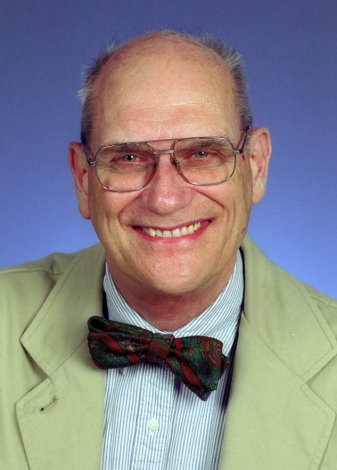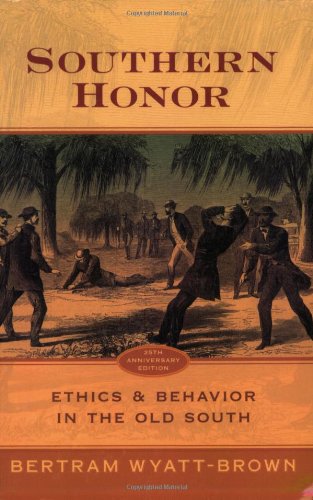Slavery was a major cause of the civil war, and yet most Southerners did not own slaves. This is a very telling fact and an interesting question. Southern Honor is an interesting look at the concept of Honor in the south and how it tied into the culture of the whole region and all classes. When Northerners attack the south for slavery, because of the concept of honor, it became not just an attack on the slave owners, or the rich southerners it was an attack on the whole region and culture. This is an important fact when looking at the causes of the civil war and the history of the South.
This breakthrough work, published in 1982, was an unusual blend of literary analysis, parlor politics, suspenseful storytelling and extensively documented historical research, a combination that reflected Mr. Wyatt-Brown’s diverse interests and his embrace of anthropology and the emerging field of cultural history.
Mr. Wyatt-Brown emphasized that honor — and what he called its opposite, shame — had been important social forces in many cultures. But he asserted that honor played a special role in the antebellum South and its institution of slavery.
“Today we would not define as an ethical scheme a code of morality that could legitimate injustice — racial or class,” he wrote. “Yet so it was defined in the Old South.” In the South, he added, “honor was inseparable from hierarchy and entitlement, defense of family blood and community needs.”
“All these exigencies required the rejection of the lowly, the alien, and the shamed,” he wrote. “Such unhappy creatures belonged outside the circle of honor. Fate had so decreed.” “Southern Honor” reached a larger audience through an abridged version published in 1986, “Honor and Violence in the Old South,” which was used as a text in many college courses on Southern history.
The book includes a remarkably detailed account of the murder of a young woman by her husband, who suspected her of infidelity, in Natchez, Miss., in 1834, and the subsequent public outrage that led to the husband’s being tarred and feathered. Mr. Wyatt-Brown often said that the story, which he stumbled upon in the memoir of a Southern military officer, was what prompted him to consider honor as a cultural force.
“They wanted to disgrace the man, to shame him, because he had violated his first principle, which was, of course, to protect his wife, not kill her,” Mr. Wyatt-Brown said in a recorded interview. “So I looked up honor in the card catalog — that’s what we had in those days — and it turned out there was very little written on the subject.”
In a review of “Southern Honor” in The New York Times, the historian David Herbert Donald said Mr. Wyatt had convincingly argued what might seem an elusive thesis through “a tapestry of hundreds of specific illustrations drawn from every conceivable collection of Southern manuscripts and newspapers.” The book was a finalist for the National Book Award and the Pulitzer Prize in history.
 |
|
|
Bertram Wyatt-Brown
was born on March 19, 1932, in Harrisburg, Pa., but his family roots were not in the North. His father, Hunter Wyatt-Brown, an Episcopal bishop, and his mother, the former Laura Little, were from Alabama and eventually returned to the South. At age 8, Bertram moved to Sewanee, Tenn., and he soon realized that he was different from his new peers. He learned he had a “Yankee accent” and that he should be quicker with the “Sirs and “Ma’ams.”
A historian of the American South who documented how honor and the sometimes violent means by which people sought to preserve it were central forces in Southern culture and in the region’s embrace of slavery, died on Nov. 5 in Baltimore. He was 80.
|
|

